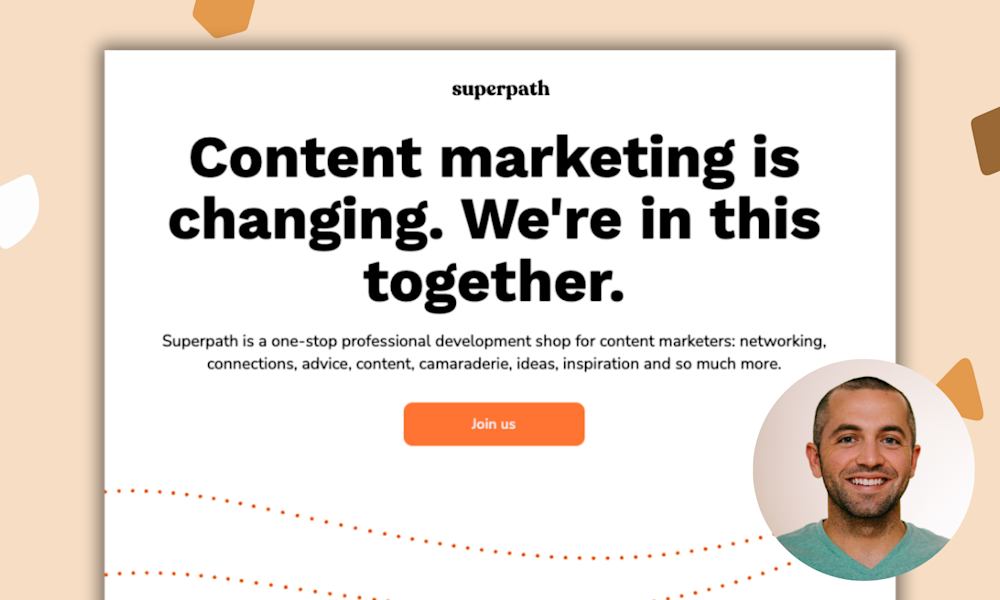“Come for the productivity, stay for the existential.”
That’s the unofficial tagline of creator Khe Hy’s RadReads, an online platform to help people live more productive, joyful, and examined lives through courses, content, and community.
“So much of productivity is about the ‘how’. ‘How do I use a text expander? What course platform should I use?’ And we think that these are all important questions, but we use those as a Trojan horse to get into your ‘why’,” Khe explains.
But Khe hasn’t always identified as a creator or entrepreneur.
RadReads started as an email Khe sent to 36 people while on vacation from his Wall Street job. He’s gone from those 36 people to an email list of 31,000 — and has brought in over $500k on Podia in the last 18 months.
Today, Khe works with a team to keep growing and reach more people with his message. His cohort-based course, Supercharge Your Productivity, opens three times a year (over 550 people have enrolled). He also offers business consulting through The Rad Studio and is building a community for his students and alumni. He’s been a full-time creator for seven years.
How did he get here?
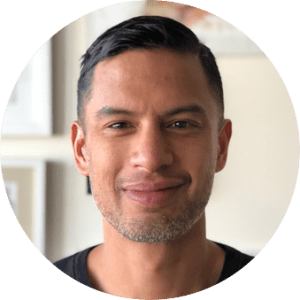
“It was the best of times, it was the worst of times. I used to be a quantitative analyst on Wall Street.”
Growing up, Khe had a clear playbook for his life path. His parents, Cambodian and French immigrants, encouraged him to prioritize education as a path to stability and happiness.
“We’re going to get you violin lessons. We’re going to get you SAT tutors. You’re going to be a gymnast in your free time. And then if you’re lucky, you’ll go to Yale,” Khe remembers.
“And once you go to Yale, you’ll major in engineering, and you’ll get a job, and it will be very comfortable and stable and your life will be happy. And we’ll all live happily ever after. That was the path that my parents set me up for and wanted for me.”
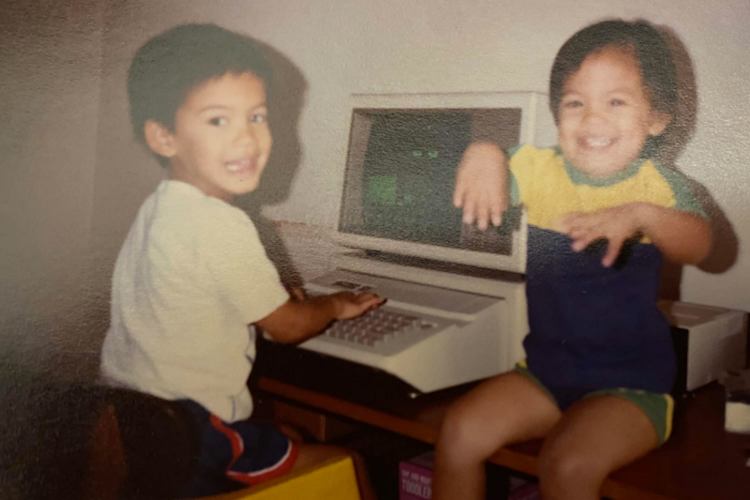
Image source: Khe’s Twitter (@khemaridh)
So, Khe went to Yale. He majored in computer science and economics and got a good job on Wall Street. He excelled and advanced in his career, culminating in a promotion to Managing Director at age 31 — one of the youngest in his company’s history.
“So I got all these things, but there was just this nagging emptiness. Now I can stay at a five-star hotel instead of a four-star hotel. Now I don’t have to check the price on this cocktail at a nice bar.” But a deeper sense of peace and fulfillment was missing.
“I didn’t know what I was looking for, but I was agitated with it. I was anxious. I wasn’t satisfied.”
There wasn’t a single moment when Khe realized “something needs to change”, but a consistent theme he began to recognize over time: “Most people [on Wall Street] view life as a zero-sum game. And I just fundamentally don’t view the world that way, so I was philosophically at odds with one another.”
Khe found himself wondering, “Is this it? Am I just going to do this for the rest of my life?” He was afraid to spend the rest of his life going through the motions.
“And I recognize the privilege in that statement,” he adds.
“I was in the top 1% or 2% of an industry, and I’m questioning, ‘is this what I want?’
But I just looked at people who were 15 years older than me. Yeah, they had these massive houses in Greenwich, Connecticut, and all their kids went to Andover, and they played squash, and all that stuff.
I think that’s a great life. It’s just not for me. I don’t want that — but I didn’t know what it was that I wanted.”
Khe knew he needed a change.
“If 5% of my time brings me 100% of my happiness, what would 100% of my time do to my life?”
Even when working on Wall Street, Khe had always enjoyed working on side projects, but never saw them as a business opportunity.
“I always liked to tinker digitally and build things … I had an anonymous blog where I wrote about music and fashion, and I would wireframe different types of websites,” he shares.
“They weren’t necessarily to start businesses because I didn’t identify as a creative and I didn’t identify as an entrepreneur. I was like, I’m a Wall Street person. This is what I know. This is what I’m good at. And that industry really tells you to stay in your lane.”
But Khe also realized that tinkering brought him more joy than his finance job. A lot more. “These activities that were 5 or 10% of my time were bringing me 110% of my joy,” he says.
The more unsatisfied he became with his full-time job, the more he thought about those side projects. The wheels started spinning: “If 5% of my time brings me 100% of my happiness, what would 100% of my time do to my life?”
In May 2015, after 14 years on Wall Street, Khe quit.
As so many of his soon-to-be-former coworkers expressed to Khe, quitting a high-level job in Wall Street without another finance gig lined up was an unconventional choice — and a big risk.
“I had a one-year-old, and I took 18 months of savings, and said to my wife, ‘it’s like an angel investment.’
We’re okay if it goes to zero, but there’s a small, small chance that it could have a spectacular return. And that spectacular return would be me discovering what I wanted to do with the remainder of my working life.”
Khe, his wife, and their one-year-old baby traveled for a few months, doing what Khe calls the “Eat, Pray, Love thing”. He still wasn’t sure what he wanted to do next, but there was one project he kept going while traveling: his email newsletter, RadReads.
The newsletter started in January 2015, while Khe was on vacation from his Wall Street job. He read some interesting articles online and wanted to share them with friends, so he wrote up an email in Gmail and BCCed 36 people.
The subject line? “Some Rad Reads from my Recent Vacation.”
Khe ended the email, “Not sure when I’ll find time for the next one!”
His friends loved it and asked him to send another one. So he did. And when he announced he was quitting, his newsletter turned into a way for his Wall Street peers to follow his journey.
“As I was quitting, people asked, ‘well, what are you going to do?’ And I said, ‘I don’t know … but if you want to keep track of what I’m doing, I have this newsletter.’”
The newsletter became a vessel for Khe’s creativity during his first few months off work.
“Within the first five issues, I called it RadReads. It was very focused on bringing ’90s street surf hip hop culture into everything that we do. So, rad coming from surf culture and Teenage Mutant Ninja Turtles. I was just kind of having fun with it.”
By the time Khe and his family returned home from their travels, the newsletter had transitioned from 36 friends via Gmail to over 500 people on Tinyletter.
He created a logo, color scheme, and template for RadReads. “All of these little things were little projects that kept me going — and they were really fun,” Khe remembers.
“I mean, that was the real important part. I was just having so much fun. And the whole point of 18 months was to just keep doing things that were fun.”
Khe also began including a short essay at the beginning of each email. “I didn’t identify as a writer and I was kind of scared to put myself out there,” he admits.
But his subscribers loved hearing Khe’s authentic point-of-view. He had built an engaged audience who trusted him — and they started asking for more.
“Coach us on how you got the courage to live an unconventional life.”
People started asking Khe to coach them. This caught him by surprise. What did he have to teach them? Finance? “I’m just a dude writing an email newsletter who has no idea how he’s going to make money doing this thing,” he recalls.
“But they were saying, in hindsight, ‘coach us on how you got the courage to live an unconventional life.’
I was starting to realize subconsciously that I was the best form of marketing for whatever product I could deliver. And the product that was being demanded and desired was coaching.”
So, in 2016, Khe started to sell coaching. He was upfront with his clients about his lack of formal training — but they weren’t coming to Khe for a formal education. They wanted to learn from his experience.
“My lived experience was more important than any credential that I could show them,” he explains. “They felt like they knew me because they were just so used to seeing me in their inbox every single week.”
Selling coaching helped Khe extend that initial 18-month window, and eventually, that deadline disappeared. “I wasn’t making a ton of money, but I was making enough, plus with my savings, I was treading water, and I could tread water for a while.”
Another big moment for Khe in 2016?
CNN declared him “Oprah for Millennials”:
A year and a half after Hy left Wall Street, no one thinks he’s crazy anymore.
He gave a TEDx talk in London in October. Several top businesses, including hedge funds, have asked him to speak to their workers about what he’s learned on his life journey the past two years. He’s active on Snapchat, dishing out daily advice …
Business news site Quartz hired Hy to be its first ever “professional in residence” in September to write “about productivity and the nature of work” and put together an event. Hy already organizes regular Happy Hours and volunteer gigs for Rad Readers to connect in real life.
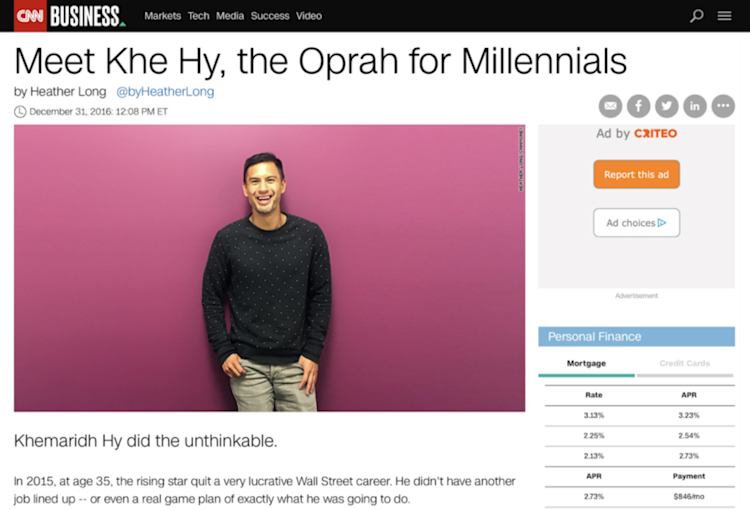
Around the same time, Bloomberg published an article on Khe, too. After those two articles went live, his email shot up to over 10,000 subscribers.
Khe also committed to starting a podcast for 52 weeks.
“I got to interview all these phenomenal people and got to learn this whole new skill of video, audio editing, being an interviewer, and presenting and storytelling… And, you know, all these things were slowly starting. They were all kind of feeding the coaching business.”
Then, Khe started telling his audience about Notion, a workspace collaboration app. “The productivity nerd in me thought, ‘oh my God, this is just the coolest thing ever.’”
People started asking him questions about Notion on Twitter, and he’d share a minute-long video to answer. Notion users loved the tutorials, and Khe loved sharing his expertise.
“They were saying, ‘teach us the features’,” Khe describes. “But what they really were saying was, ‘can you translate the enthusiasm you have into this for us?’”
With that in mind, Khe decided to create an online course.
From coaching to courses: “Just do your weird mix of who you are, and that will be the best.”
When he started thinking about creating a course, Khe turned to his friend and fellow productivity expert Tiago Forte. Tiago had launched a successful course, so Khe asked for his advice: What exactly should he teach? How should he specialize?
Tiago’s advice to Khe: “Just do your weird mix of who you are, and that will be the best.”
It took Khe some time to hone in on that weird mix. The first iterations of his flagship Supercharge Your Productivity course were focused solely on Notion.
Khe was one of the top Notion experts in the world, and his course promised to help users understand and make the most of every feature.
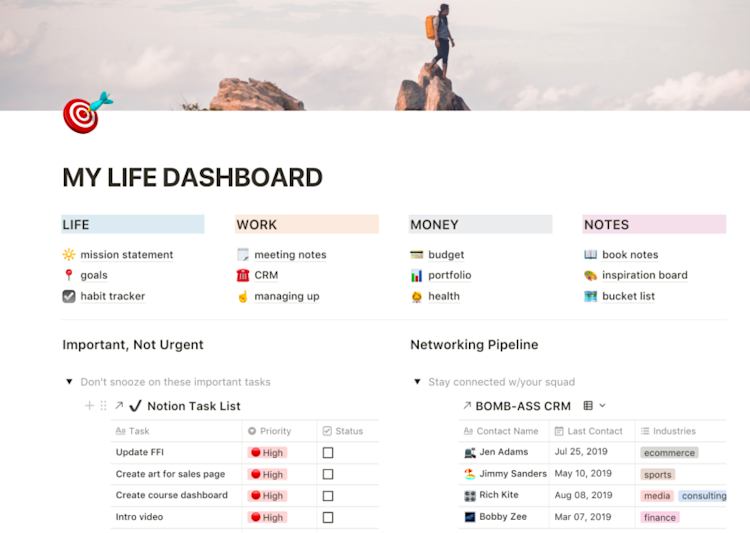
When he launched his first course, Khe didn’t see himself as a marketer. In fact, he wasn’t a big fan of marketing at all.
“I was very naive about marketing … also had this personal gripe with it. It felt very icky. Marketing felt manipulative. I just didn’t want to make someone feel sh–ty about themselves, and then say, ‘Hey, buy my product.’”
As he built his course and continued communicating with his audience, however, Khe realized that he could avoid the ick factor of marketing and still sell courses.
“I realized that I had built up this marketing machine that wasn’t icky. There’s a saying: ‘Don’t sell people vitamins, sell them painkillers.’
I wanted to sell vitamins. I didn’t want to be in the painkiller business. And by sharing my life in such detail and in so much texture that what I was actually selling them was a vitamin. And it was a very authentic vitamin.”
His audience loved that authenticity — and they wanted more. Again, Khe found that his students wanted to learn more about the way he lived his life.
Supercharge Your Productivity started to become less about Notion and more about lifestyle.
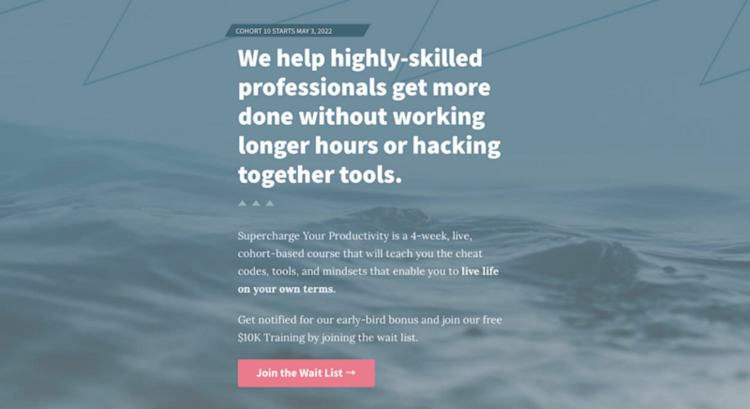
Instead of giving app tutorials and recommendations, Khe started asking his students more philosophical questions: “Why do you want these things? Why do you get in your own way? Why do you not complete projects? Why do you have trouble prioritizing?”
He took Tiago’s advice — “do your weird mix of who you are” — and turned the course into what he describes as “this quirky version of my life principles that are semi at odds.”
“You know everything about every single productivity app, yet you’re the same person that surfs every day and hasn’t set an alarm in three years — and you run a super profitable business.” How did he balance it all?
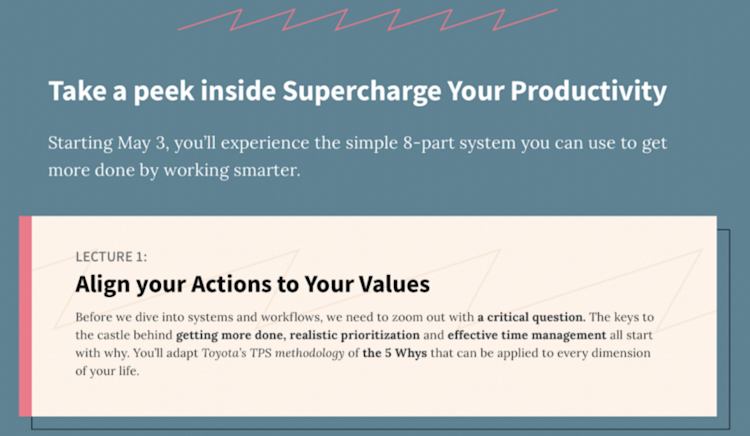
Khe began teaching his students the way he views prioritization, goal setting, and time management through his "$10,000 work" framework. He empowered his students to apply these new frameworks in their own lives, and they did so — with stellar results.
“I’m making better decisions, faster and more confidently than ever before,” wrote one alumnus. “The course paid for itself after the first class, but the value keeps growing every month.”
“This is more than a productivity class. It’s about figuring out what really matters to you, why it matters, and how to make time for those things that matter,” said another.
Now, Khe runs Supercharge Your Productivity as a cohort-based course that runs for four to six weeks, three times a year. The course costs between $1500 and $2500 and is the core of RadReads’ business, making up most of its revenue.
And Khe hosts it all on Podia.
“It just feels like Podia is in it for the long game.”
Khe originally hosted his online courses on Teachable, but later moved over to Podia. Now, he’s made over $500k in revenue on Podia in the last 18 months, 90% of which comes from Supercharge Your Productivity.
Why did Khe make the switch?
For one, he liked the look of things.
“One of the things that instantly drew me to Podia was the design aesthetic. It’s so representative of how I want to show up. For me, that really over-indexes on design and user experience.”
“You know right away when someone is using a WordPress site,” he adds. “You don’t know right away when someone’s using a Podia site, you just know that it’s different and it’s better.”
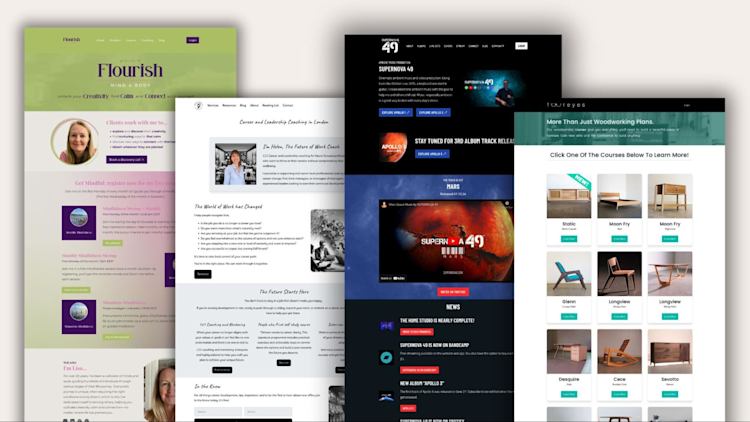
As a self-proclaimed productivity junkie, Khe also likes how easy Podia makes it to get things done. “Other platforms just have too much going on. You can never find what you need to do,” he notes.
Maybe most importantly, Khe appreciates how Podia strikes a balance between being product-centric and creator-centric.
“I don’t really know the ethos of the other companies,” he says, but he could tell from the start that Podia is “maker-focused”. “It just feels like [Podia] is in it for the long game. The team is bought in for the long game.”
“I like products where features are really well thought out. Now that I’ve become more attuned with what it means to be a product-centric organization, I really appreciate how product-centric Podia is while at the same time being very customer-centric.”
Want to create and sell online courses like Khe? Get started today with a free 30-day trial.
Advice for new creators: “Find the medium that makes you come alive.”
Khe’s biggest advice to new creators: Choose something that you think you’ll love and stick with it for 25 straight weeks.
“Creators are obsessed about the things that they create,” he shares. RadReads is on its 327th issue, and Khe still loves writing it each week. “I still look forward to writing an essay every Saturday for the email.”
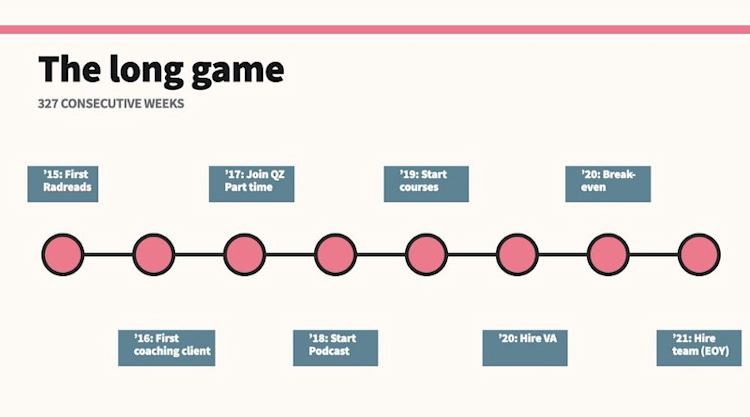
If something doesn’t stick after 25 weeks, it might mean you don’t enjoy it.
But it also might mean that even some things you enjoy are hard to do consistently for 25 straight weeks.
“If you asked me to create a newsletter about artificial intelligence or NFTs, I couldn’t do it. I just don’t care about those things,” Khe describes. “There’s no financial carrot that can make me write about NFTs for 25 straight weeks.”
Khe recommends finding where you fall on the spectrum of generalist to specialist. Contrary to some popular advice, he finds that being more of a generalist has its perks. For one, it keeps things interesting.
“A lot of the giants in our industry have told me, ‘If you want to grow fast, specialize’. Be the X guy. Be the Notion guy. And I just refuse to pigeonhole myself that way, (A) because I see there’s significant business risk in doing that, but more so, if I was just the guy at one thing, I would get bored. I just won’t do it. I won’t do it to myself.”
Khe Hy has been running RadReads for seven years.
He’s tried coaching, courses, email, Snapchat stories, blogging, consulting, podcasting, and has been called “Oprah for Millennials.” He started with an email to 36 people and now has a team that teaches thousands how to live a rad life.
Today, the lesson he shares from his story is simple: “Find the medium that makes you come alive.”

